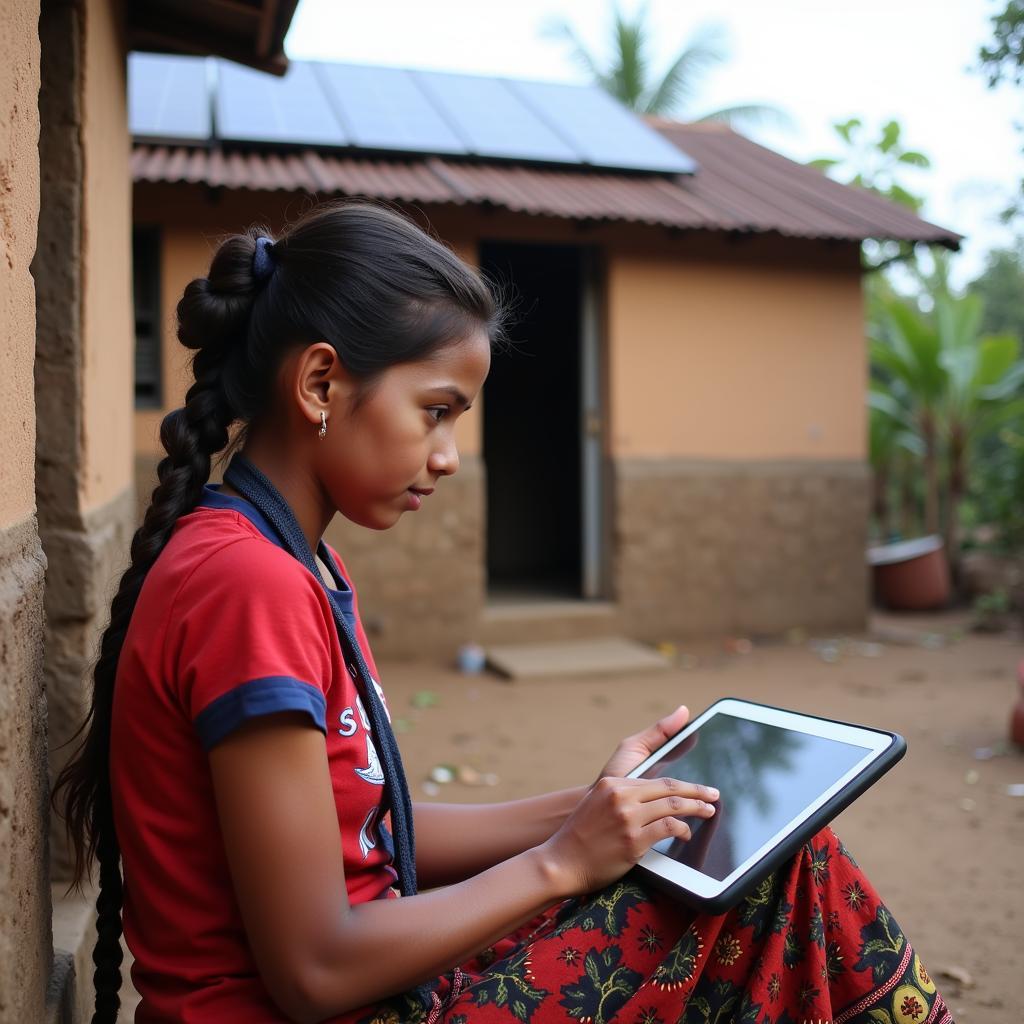ASEAN social informatics is rapidly transforming how people connect, communicate, and share information across Southeast Asia. This dynamic field explores the interplay between information technology and social change within the ASEAN region, offering exciting opportunities and challenges for development and integration. From rural villages to bustling metropolises, the impact of social informatics is felt in all corners of the ASEAN community.
Understanding ASEAN Social Informatics
Social informatics examines how technology influences social structures, behaviors, and cultural norms. Within the ASEAN context, this means understanding how social media, mobile platforms, and the internet are shaping political discourse, economic activities, and cultural exchange across diverse nations. It also considers the ethical implications and social responsibilities that come with these technological advancements.
The Impact on ASEAN Integration
ASEAN social informatics plays a crucial role in fostering regional integration. By facilitating communication and collaboration across borders, it helps break down barriers and build stronger ties between member states. This digital interconnectedness can contribute to greater economic cooperation, cultural understanding, and shared prosperity.
One key aspect is the development of digital literacy programs. Equipping citizens with the skills to navigate the digital landscape is crucial for empowering them to participate fully in the digital economy and access essential information and services.
 ASEAN Digital Literacy Program in Action
ASEAN Digital Literacy Program in Action
Another important area is the promotion of cross-border e-commerce. By simplifying online transactions and streamlining regulations, ASEAN can create a vibrant digital marketplace that benefits businesses and consumers alike. This can boost economic growth and create new job opportunities throughout the region.
Addressing the Digital Divide
While the potential of ASEAN social informatics is vast, it’s essential to address the digital divide that exists within and between member states. Ensuring equitable access to technology and digital literacy is crucial for promoting inclusive development and preventing social inequalities from widening.
Bridging this gap requires investment in infrastructure, affordable internet access, and targeted training programs. It also necessitates a focus on local language content and culturally relevant applications to ensure that technology serves the needs of all communities.
 Bridging the Digital Divide in Rural ASEAN
Bridging the Digital Divide in Rural ASEAN
Opportunities and Challenges in ASEAN Social Informatics
ASEAN social informatics presents both exciting opportunities and complex challenges. On the one hand, it can empower marginalized communities, promote transparency and accountability, and drive innovation across various sectors. On the other hand, it also raises concerns about data privacy, cybersecurity, and the spread of misinformation.
Building a Secure and Inclusive Digital Future
To harness the full potential of ASEAN social informatics, it’s crucial to develop robust regulatory frameworks that protect individual rights and promote responsible technology use. This includes fostering collaboration between governments, civil society organizations, and the private sector to establish ethical guidelines and best practices.
Furthermore, investing in research and development is essential for staying ahead of the curve and fostering innovation in the field of social informatics. This can lead to the creation of new technologies and solutions that address specific challenges facing the ASEAN region.
 ASEAN Cybersecurity Summit
ASEAN Cybersecurity Summit
Conclusion
ASEAN social informatics is a powerful force for change in Southeast Asia. By fostering digital literacy, promoting connectivity, and addressing the digital divide, ASEAN can unlock the full potential of this field to drive inclusive growth, enhance regional integration, and build a more prosperous and connected future. It is crucial to continue exploring the dynamic intersection of technology and society to ensure that ASEAN social informatics benefits all members of the community.
FAQ
- What is ASEAN social informatics?
- How does social informatics contribute to ASEAN integration?
- What are the challenges of bridging the digital divide in ASEAN?
- How can we ensure responsible technology use in the region?
- What role does digital literacy play in empowering ASEAN citizens?
- What are some examples of successful social informatics initiatives in ASEAN?
- How can I get involved in promoting social informatics in my community?
Need help with ASEAN Social Informatics? Contact us 24/7 at Phone Number: 0369020373, Email: [email protected] or visit our office at Thon Ngoc Lien, Hiep Hoa, Bac Giang, Vietnam. We are here to assist you.
